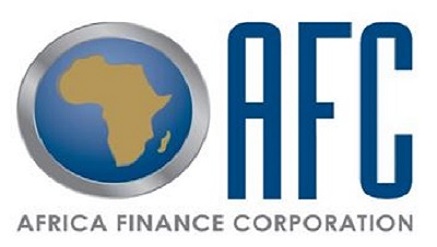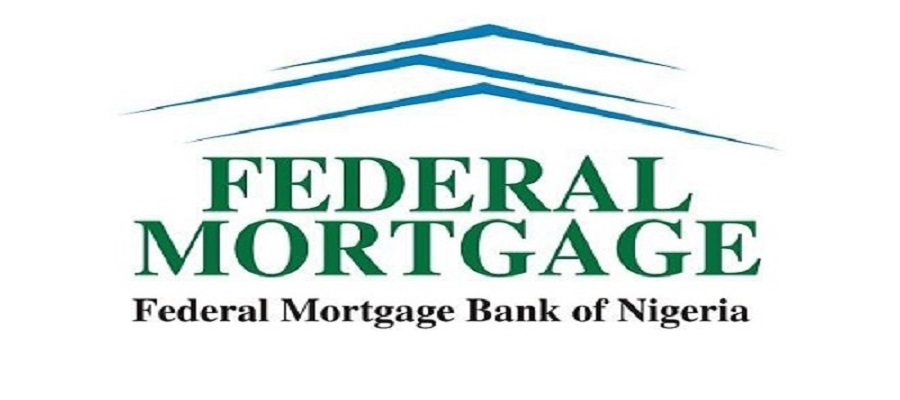E-Financial
AFC Launches Africa Project Developers Initiative

Africa Finance Corporation (AFC) alongside its development partners is pleased to announce the launch of the Africa Project Developers Initiative (APDI), a think tank and network to promote and enable project development in Africa.
It creates a platform that fosters continuous dialogue amongst members, standardises project development documentation, develops market benchmarks, enables knowledge transfer, leads and facilitates independent research and serves as a policy advocacy forum for the industry.
A significant bottleneck in unlocking Africa’s infrastructure is the development of viable projects that meet the viability and bankability tests of financiers. African project development itself is a proven asset class, with an increasing number of projects successfully reaching financial close: Azura, Nigeria; Cenpower, Ghana; Cabeolica, Cape Verde; Henry Konan Bedie Bridge, Cote D Ivoire.
The challenges experienced by developers require the establishment of an innovative and collective approach to addressing the issues.
The average project development time span from concept to financial close is 7 years. If Africa is to make an impactful difference and meet its developmental aspirations, a think tank such as the Africa Project Development Initiative, is an imperative for project developers.
Oliver Andrews, executive director and chief investment officer of AFC commented: “There are huge opportunities for international investors in Africa if its much-needed large scale infrastructure projects are bankable. As one of Africa’s leading project developers, AFC knows the challenges facing both developers and investors and has successfully negotiated them in the past to bring about some of the continent’s most significant infrastructure projects. APDI will combine our experience and expertise with that of our partners to create innovative solutions to the issues inherent with project development.”
Mr. Andrew Alli, president and CEO of AFC, announced the establishment of APDI at the last edition of the Africa Investor Conference in 2015.
AFC will be collaborating with partners such as FMO and IFC, amongst others, to have a pre-launch round table meeting in May 2016 in Lusaka, on the occasion of the Annual General Meetings of the African Development Bank. A formal launch is planned in September 2016.
AFC’s mission is to address Africa’s pressing infrastructure needs and build the foundations for robust economic development across the continent, all the while seeking a competitive return on investment for its shareholders.
To date the Corporation has invested over US$5 billion in projects across 22 African countries and in a wide range of sectors including power, telecommunications, transport and logistics, natural resources and heavy industries.
E-Financial
SEC Partners FMBN Partner on Non-Interest Mortgage Framework

Securities and Exchange Commission (SEC) and the Federal Mortgage Bank of Nigeria (FMBN) have announced a strategic collaboration to develop a robust Non-Interest Mortgage (NIM) ecosystem.

This significant move is part of efforts to address the nation’s massive housing deficit and deepen financial inclusion.
At a high-level meeting in Abuja of Friday, both parties agreed to create and regulate viable Sharia-compliant financing structures that will enable millions of Nigerians, particularly those excluded from conventional interest-based loans, to access affordable homeownership.
With Nigeria’s housing deficit estimated to be over 28 million units, the initiative is being hailed as a potential game-changer.
It directly addresses a key barrier to homeownership: the affordability and religious compliance of mortgage products for a significant segment of the population.
The successful implementation of this framework is expected to not only reduce the housing deficit but also stimulate the construction industry, create jobs, and foster greater financial inclusion, ultimately contributing to national economic growth.
Unlike conventional mortgages that charge interest, non-interest financing is based on principles of risk-sharing, asset-backing, and equitable returns. The models under consideration include:
Musharakah (Diminishing Partnership): The bank and the customer jointly purchase a property. The customer gradually buys out the bank’s share through periodic payments, eventually becoming the sole owner.
Ijara (Lease-to-Own): The bank buys the property and leases it to the customer for a fixed period. A portion of the rental payments goes towards the eventual ownership transfer.
Murabaha (Cost-Plus Sale): The bank acquires the property and sells it to the customer at a pre-agreed markup, payable in instalments.
Commenting on the development, Mr Emomotimi Agama, director-general of SEC, said his agency would provide the necessary regulatory guidance and framework to facilitate the issuance of Sukuk (imic bonds) and other non-interest capital market products to fund these mortgages.
“Our collaboration with FMBN is pivotal to unlocking long-term financing for the housing sector. By creating a clear regulatory pathway for non-interest mortgage-backed securities, we can attract ethical investors, both domestic and international, to channel funds into this critical area. This will create a virtuous cycle of funding, construction, and ownership,” he stated.
On his part, Mr Shehu Osidi, chief executive of FMBN, said the partnership marks a critical step in fulfilling the bank’s mandate to provide affordable housing for all Nigerians.
“For a long time, a substantial number of our citizens have been unable to participate in the National Housing Fund (NHF) scheme due to the interest-based nature of conventional mortgages.
“This partnership with SEC is a strategic response to that gap. We are committed to developing non-interest mortgage products that are not only ethical and inclusive but also financially sustainable,” he noted.
E-Financial
Banks Lost N3.3Bn to Fraud in Q1 of 2025 – FITC

Nigerian Banks have recorded a N3.3 billion loss to fraudulent activities during the first quarter of 2025, a 603% year-on-year (YoY) increase from N468 million in the first quarter of 2024, according to The Financial Institutions Training Centre (FITC).

This is contained in a September 2025 report by FITC.
In its methodologies, FITC received 73 fraud and forgery submissions from Nigerian banks between January and March 2025.
The highest (25) was in March, which accounted for the highest volume with 25 submissions. Amid this, the total cases reported increased by 7.7% to 12,347 in Q1 2025.
Further breakdown shows that the most frequently reported incidents were tied to computer/web platforms (7,361 cases), mobile transactions (2,875 cases), and POS terminals (1,559 cases).
While computer/web-based fraud emerged as the most financially significant category in Q1 2025, it also accounted for N10.6 billion (47.7%)of the total amount involved in reported cases.
With a total case at over 12,000, the total amount involved surged by 645.4% to N22.27 billion.
The comparison shows that fraudsters are now targeting fewer but higher-value transactions.
This shows that perpetrators are bypassing banks’ systems of flagging volume anomalies and leveraging on their weak detection systems.
On a positive note, the first quarter of 2025 witnessed a reduction in outsider participation in fraud, with reported cases falling by 4.8% YoY to 10,896.
However, staff-related incidents increased with 63 cases recorded in the quarter compared to 47 in Q1 2024.
In addition, 28 employees are currently under investigation, and 23 staff members had their appointments terminated.
According to FITC, the report signals a pivot in fraud tactics and a switch from frequent small-value hits to targeted, high-impact operations. “Fraud is no longer a volume issue; it’s a value game. And staying ahead means thinking proactively and innovatively,” it added.
In terms of channels, card-based fraud accounted for 11,972 cases (N1.6 billion loss) while cash-related fraud accounted for 375 cases (N832.4 million). Also, cheque-related cases were 46, with a loss of (N837.7 million).
The FITC has advised Nigerian banks to strengthen their security protocols and systems to prevent unauthorised access to customer accounts and sensitive information, considering the rising fraud cases.
According to the report, this may involve incorporating measures such as multi-factor authentication, implementing strong encryption techniques, and ensuring regular security updates are in place.
They can also integrate fraud models that weigh transaction context, behavioural history, and device fingerprints.
“Financial institutions must adopt a layered, adaptive, and intelligence-first approach, supported by interbank collaboration, staff accountability, and informed customer behaviour,” it said in the report.
To curtail staff-involved cases and reduce internal risk, financial institutions must deploy role-based access management, ensuring limited data/system visibility per role.
Another corrective measure is the introduction of monthly digital footprints and outlier audits for staff handling high-risk operations.
E-Financial
PalmPay Executes Nigeria’s First Live Transaction on the National Payment Stack

PalmPay, Nigeria’s leading digital banking platform, has once again demonstrated its leadership in driving the nation’s payment revolution. In a landmark development for Nigeria’s digital economy, PalmPay, in collaboration with Wema Bank, completed the first live transaction on the Nigeria Inter-bank Settlement System (NIBSS) National Payment Stack (NPS), a next-generation infrastructure designed to redefine how money moves across the country.

The first live transaction, which happened at exactly 11:56 am on Friday, November 7, 2025, marks a new era in Nigeria’s financial innovation journey and reinforces PalmPay’s role as a trusted pioneer in the payment ecosystem.
This achievement rides on the back of the brand’s growing reputation as a fintech innovator, following recent global recognitions as Financial Times Africa’s Fastest-Growing Companies 2025 and CNBC and Statista’s Top 300 Global Fintech Companies for two consecutive years (2024 and 2025) for its impact, scale, and commitment to inclusive growth across emerging markets.
A Milestone that Redefines the Future of Payments
The National Payment Stack (NPS), powered by NIBSS, builds on the success of the NIP infrastructure, introducing greater speed, interoperability and real-time settlement across the financial ecosystem. Designed to meet international standards, NPS enhances cross-border payment capabilities while introducing more advanced security features, including digital signatures and multi-factor authentication to safeguard users and institutions.
Beyond its technical advancements, the National Payment Stack (NPS) sets a new benchmark for Nigeria’s leadership in Africa’s finance landscape. Through the ISO 20022 global messaging standards, Nigeria is now positioned as a regional hub for seamless and secure cross-border transactions.
Commenting on the landmark achievement, the Managing Director/Chief Executive Officer of the NIBSS, Premier Oiwoh, said: “We commend PalmPay for this historic achievement as one of the key collaborators in executing the first successful transaction on the National Payment Stack (NPS). This milestone reflects our shared
commitment to advancing a faster, safer and more interoperable payment ecosystem for Nigeria. The NPS represents the next frontier of innovation designed to power inclusion, efficiency and growth across the financial industry. We look forward to more institutions coming on board as we collectively shape the future of payments in Nigeria and across Africa.”
Also speaking, Jaipei Yan, Group Chief Commercial Officer at PalmPay, stated, “This achievement is a win for Nigeria and Nigerians. PalmPay is all about providing smarter banking solutions. Since our launch six years ago, we have focused on bridging the gap between innovation and everyday financial inclusion. It was an absolute delight to work with NIBSS and other stakeholders on this remarkable milestone.”
By pioneering this milestone, PalmPay not only strengthens its credibility but also reinforces its alignment with the Central Bank of Nigeria’s drive toward a digital, connected economy. From ranking among the world’s leading fintech brands to executing Nigeria’s first live transaction on a national payment infrastructure, PalmPay is proving that innovation, when purpose-driven, can transform economies.
Looking ahead, PalmPay aims to accelerate its vision of a connected, digital, and financially inclusive Africa, combining global standards with local relevance to build technology that truly empowers people and businesses.

 Telecom2 days ago
Telecom2 days agoTecom, Huawei to Champion Smart Connectivity and Digital Innovation in Abuja

 E-Business2 days ago
E-Business2 days agoNITDA DG Tasks Youths to Drive Africa’s Digital Transformation

 Telecom2 days ago
Telecom2 days agoGirls Slug it Out for N5m Prize in Glo Innov8 STEM Finale

 News2 days ago
News2 days agoIHS Holding Chairman, Sam Darwish Credits Nigeria for Strong Q3’25 Earnings

 E-Business2 days ago
E-Business2 days agoAfrica Trade Engine Launches to Boost Intra-Continental Trade, Industrialisation

 Telecom2 days ago
Telecom2 days agoGroup Opens Call for Session Proposals for the 2026 Digital Rights and Inclusion Forum

 Telecom2 days ago
Telecom2 days agoAfrica’s TikTok Trailblazers Take the Spotlight at 2025 Awards Ceremony

 News1 day ago
News1 day agoFirm Urges Organizations to Check Protection of their Websites Amid Search Engine Optimisation Attack Schemes














